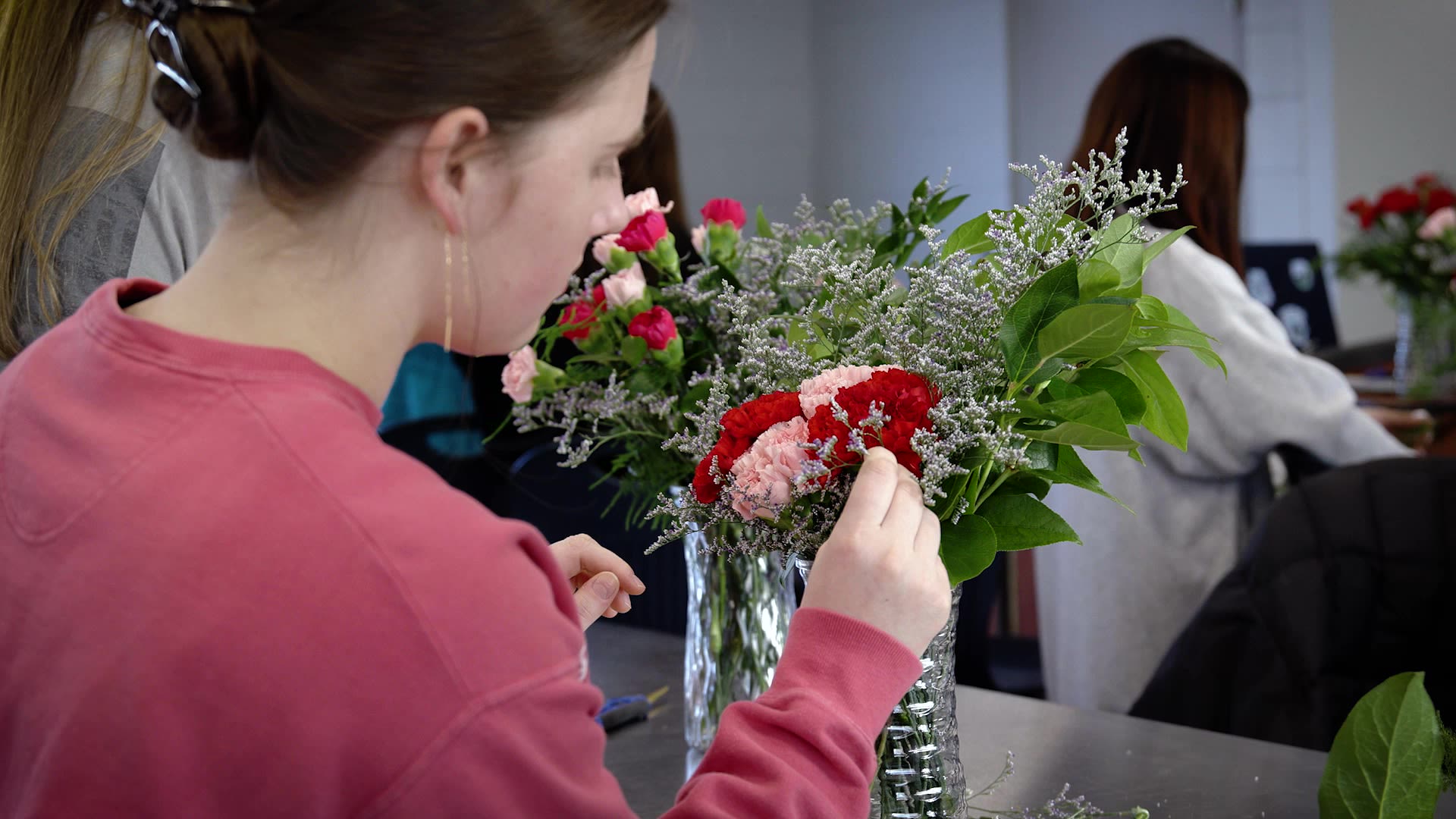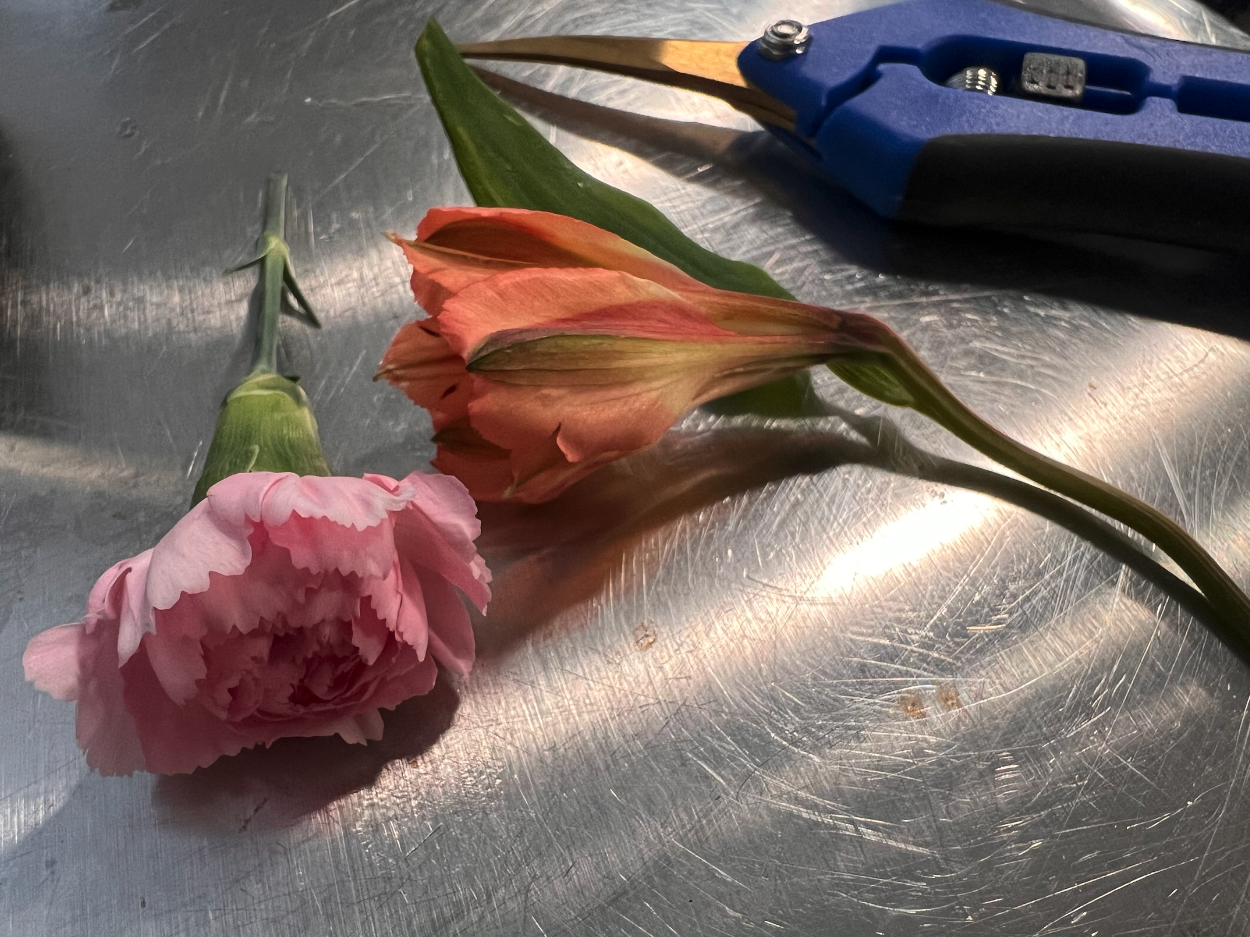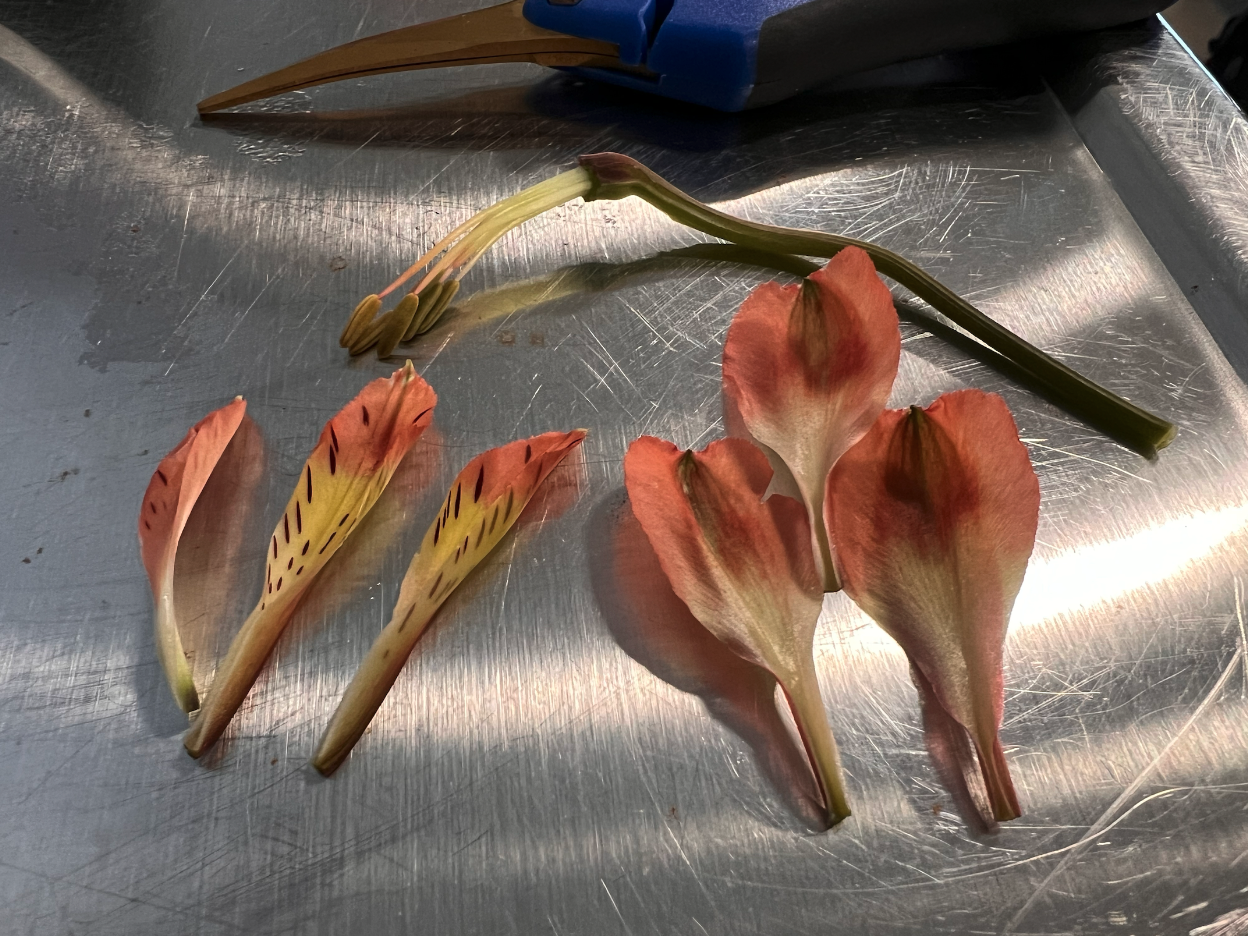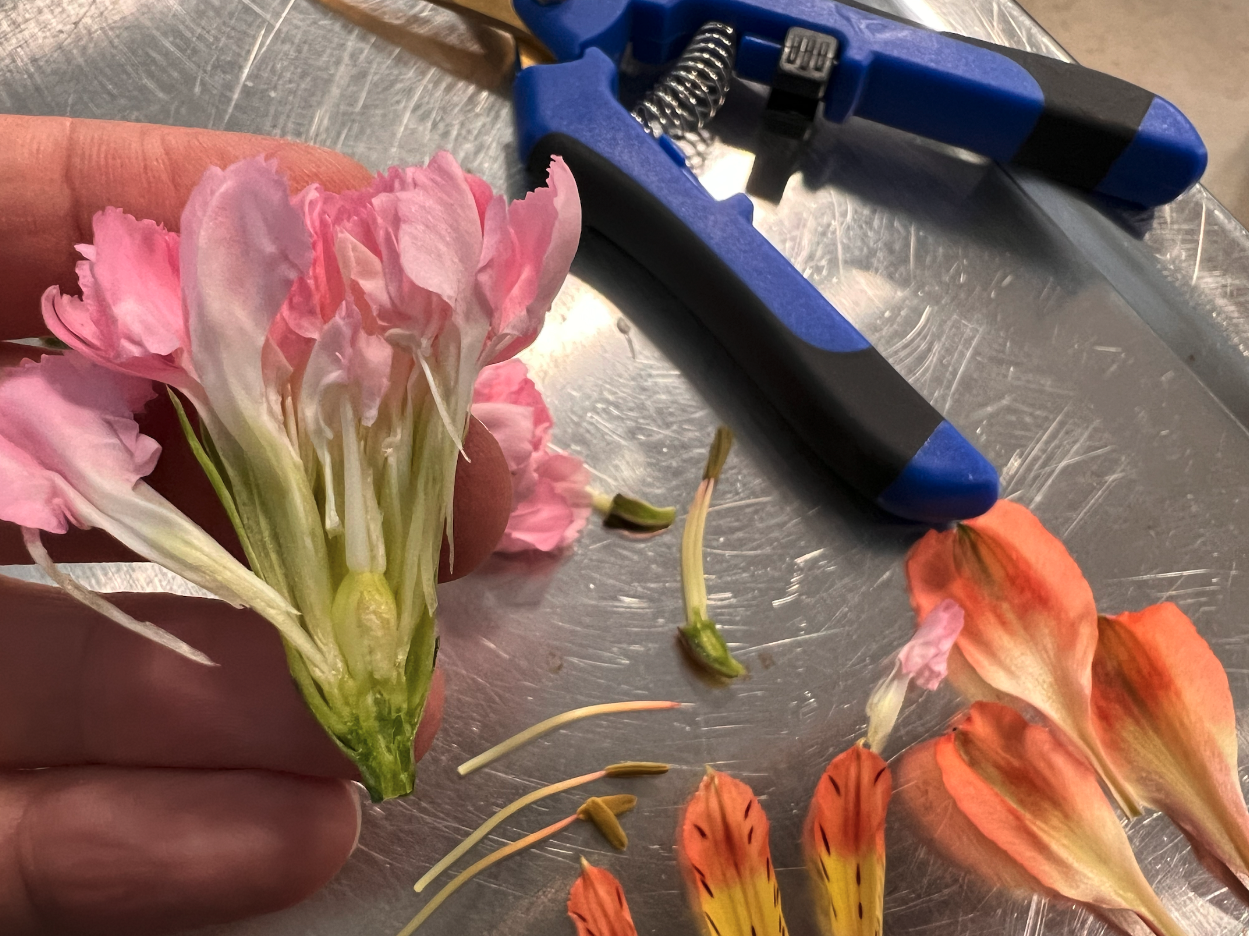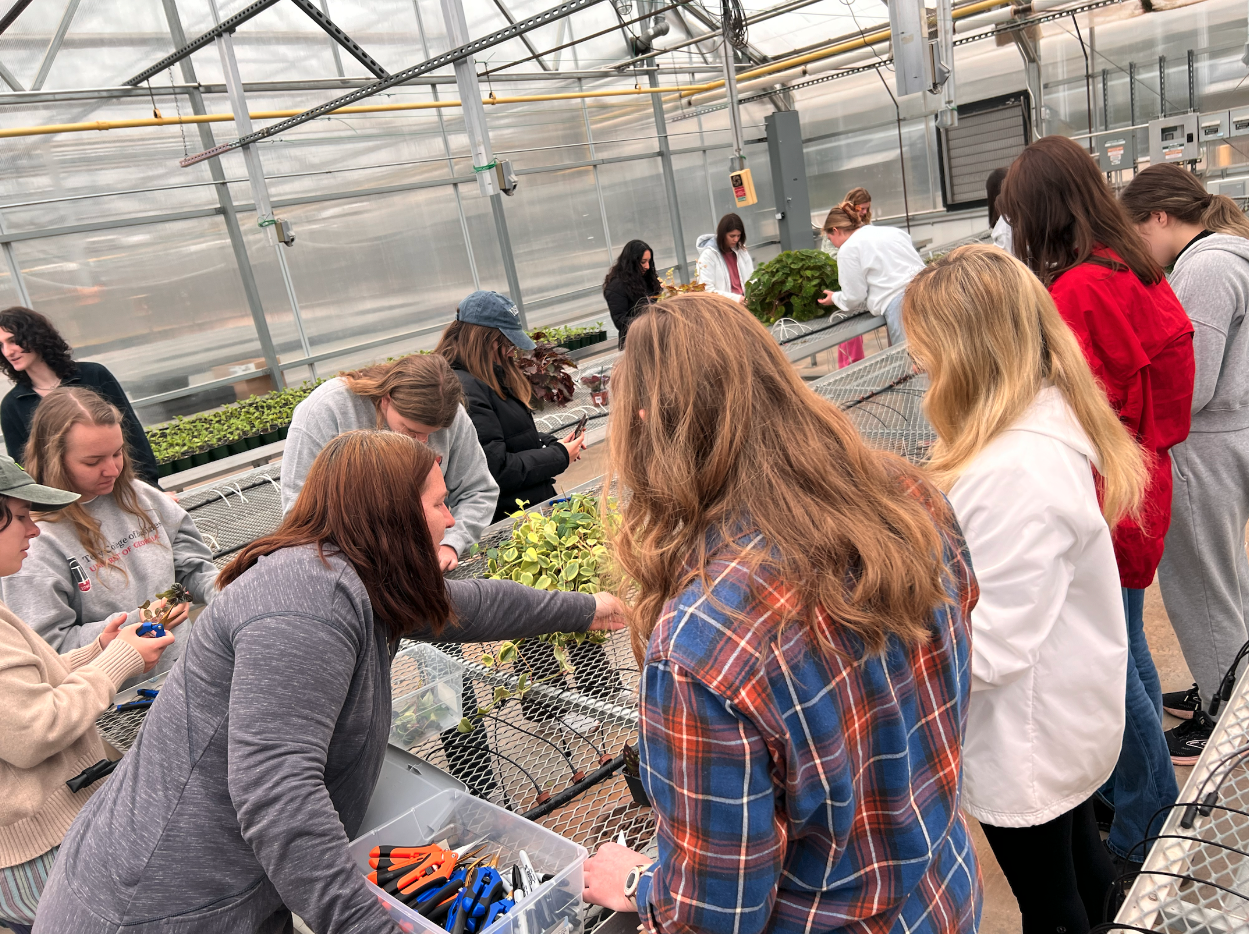UGA horticulture course teaches fundamentals of floral design
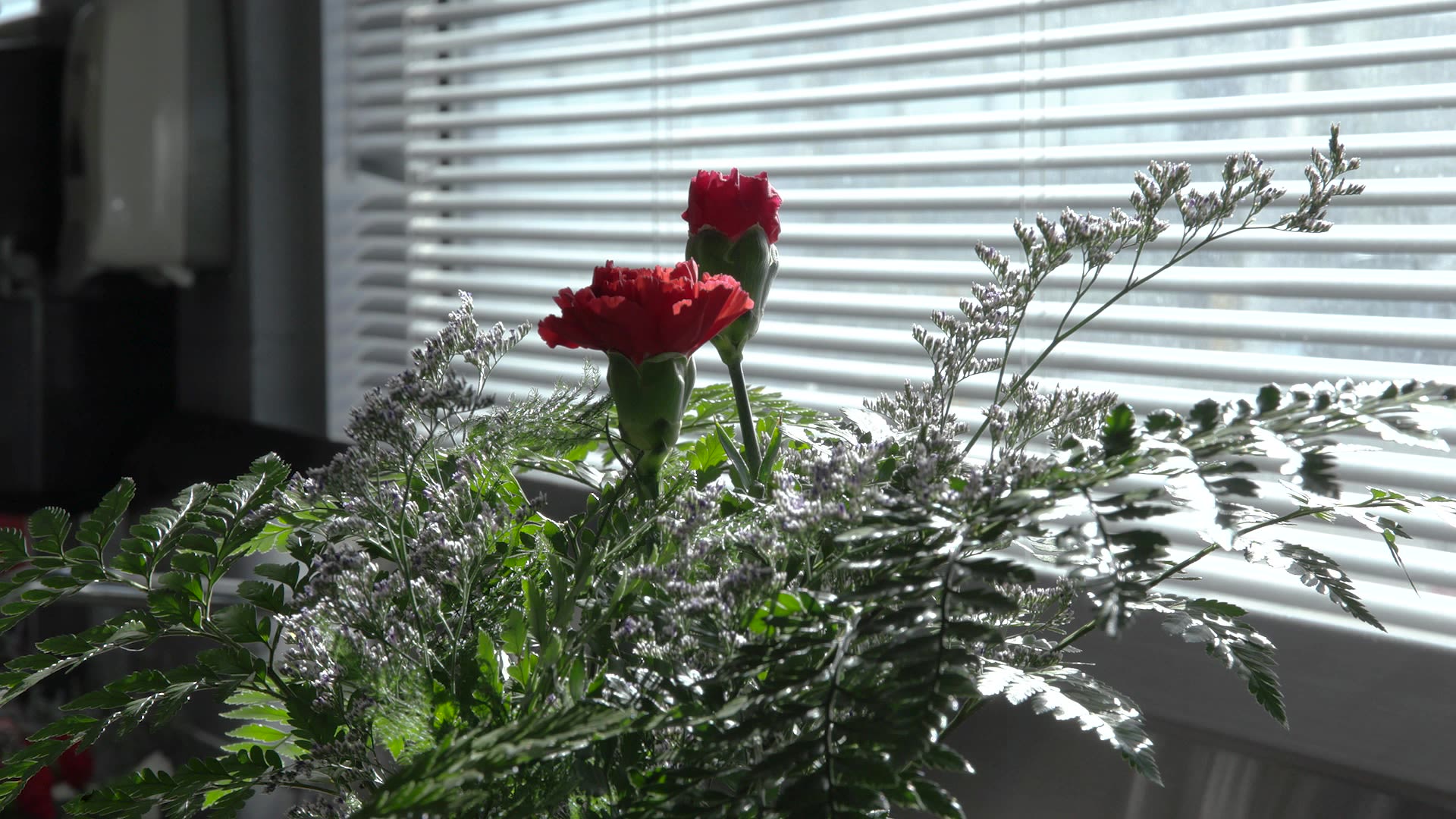
As students filter into Julie Campbell’s Tuesday morning lab, they are greeted by bins of sharp tools lining cold, stainless steel tables. It’s dissection day, but not the kind you may expect.
This is “Floral Design and Management,” or HORT 3030, and today’s lesson is the anatomy of a flower.
Students pass pale pink carnations and delicate yellow-and-orange Alstroemeria around the room as Campbell, assistant professor in the Department of Horticulture at the University of Georgia College of Agricultural and Environmental Sciences, begins a lecture on plant morphology and how external plant structure, color, leaf size and shape impact floral arrangements.
“When we understand what materials to use and how to properly care for those materials, we keep products fresher longer, increase satisfaction and save — or make — money,” Campbell said.
Students learn where to cut plants for successful propagation.
Students learn where to cut plants for successful propagation.
After learning the parts of the flower, students practice assembling bouquets.
After learning the parts of the flower, students practice assembling bouquets.
Campbell demonstrates how to create a traditional flower arrangement to a classroom of students from majors across UGA.
Campbell demonstrates how to create a traditional flower arrangement to a classroom of students from majors across UGA.
Setting a foundation for floral industry careers
This is Campbell’s fourth year teaching the class. Not only popular among horticulture enthusiasts, students across UGA enroll in the course for an introduction to careers in the green industry.
“Students receive credit for the class in horticulture, but we have students join from across UGA,” Campbell said. “Business, marketing, advertising, design; I teach this as a general class learning the basics and mechanics, not super high-end installations.”
Campbell recently lectured on careers, focusing on the countless roles that indirectly involve getting flowers from fields into the hands of consumers. Shipping logistics, cooling systems, sales and marketing are all necessary fields in the floral industry.
“If you like plants and flowers, you don’t have to major in horticulture to be involved in the industry,” Campbell said.
Throughout the term, students in “Floral Design and Management” learn the economic importance of the floral industry, develop skills in creating and evaluating floral compositions, and gain knowledge of the biological principles involved in floral product processing and care.
With a research focus in horticultural marketing and consumer behavior, Campbell’s course objectives place special emphasis on the process of product pricing and the importance of holidays and special occasions in the marketing of floral products — especially Valentine’s Day.
“Depending on your style and how much creativity you have, you can really make this class your own,” Campbell said.
UGA Horticulture Club expands class experience
Campbell also advises the UGA Horticulture Club, a student-run organization with an emphasis on growing plants and promoting horticultural careers. Students in the club — who study horticulture, landscape architecture and related disciplines — grow plants to sell throughout the year, allowing members to gain experience in growing, marketing and sales.
Proceeds support scholarships, professional development and club trips, including the National Association of Landscape Professionals National Student Landscape Competition, where the UGA Horticulture Club is a contender.
Each fall and spring, the club travels to gardens, nurseries and parks across the country. Recent trips have had destinations including Asheville, North Carolina; Miami, Florida; and Puerto Rico.
The next Horticulture Club sale will feature Rosaprima roses and succulents in time for Valentine’s Day. The sale will take place from 9 a.m. to 4 p.m. Feb. 13 and 14 on the Tate Center concourse on UGA’s Athens campus. For more details about the annual rose sale, visit caes.uga.edu.
To learn about course offerings, experiential learning opportunities and careers in horticulture, visit hort.caes.uga.edu.
